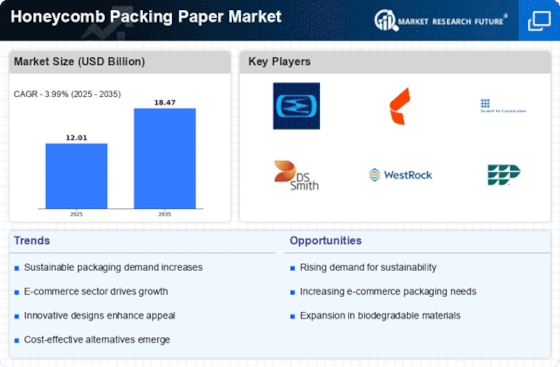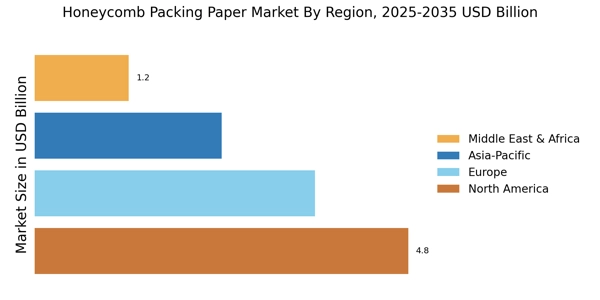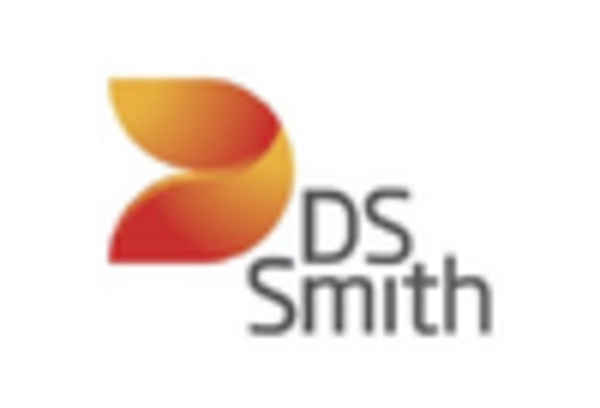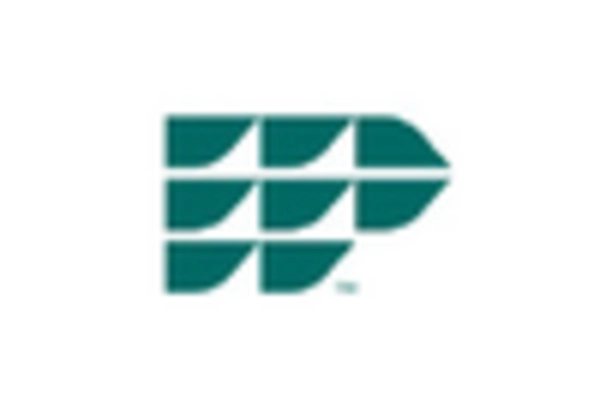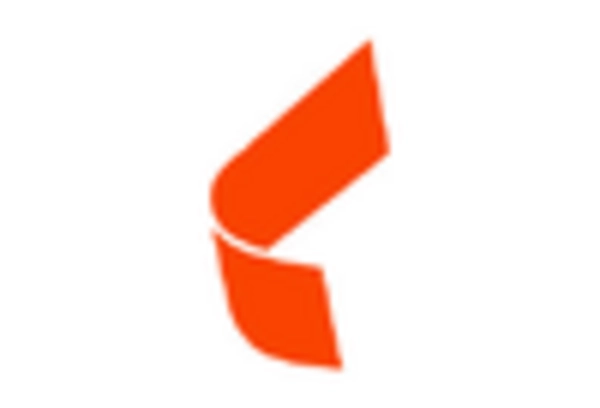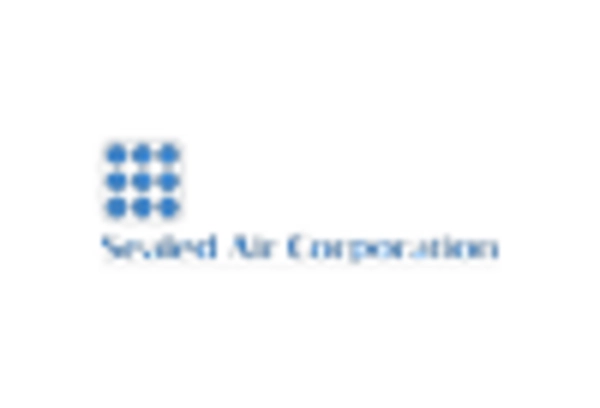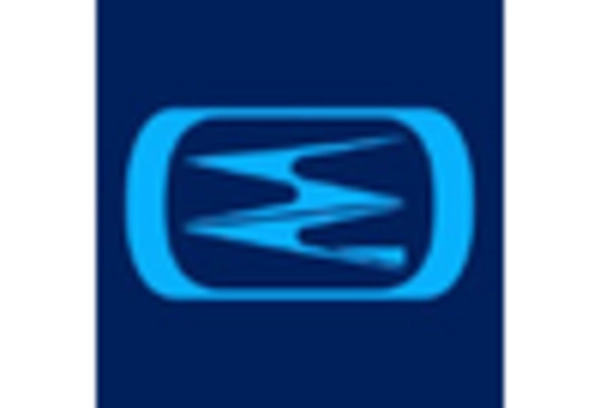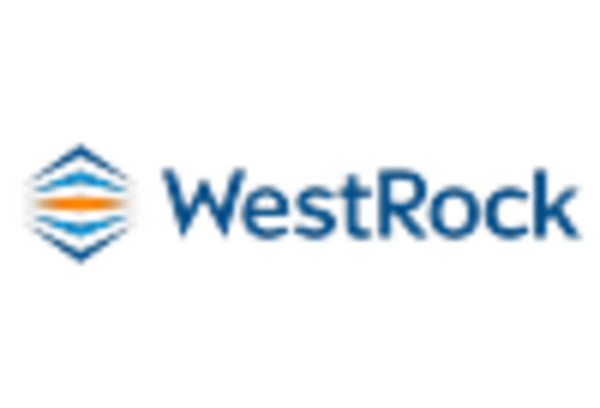Cost-Effectiveness
Cost-effectiveness is emerging as a significant driver for the Honeycomb Packing Paper Market. Businesses are continually seeking ways to reduce packaging costs while maintaining product integrity. Honeycomb packing paper, known for its lightweight yet sturdy properties, offers a cost-efficient alternative to traditional packaging materials. Market data suggests that companies utilizing honeycomb packing paper can achieve savings of up to 20% in shipping costs due to its reduced weight. This financial incentive is likely to attract more businesses to adopt honeycomb packing solutions, thereby fostering growth within the Honeycomb Packing Paper Market. As companies prioritize cost management, the demand for such economical packaging options is expected to rise.
Rising E-commerce Sector
The rapid expansion of the e-commerce sector is driving demand for effective packaging solutions, thereby benefiting the Honeycomb Packing Paper Market. As online shopping continues to grow, the need for protective and lightweight packaging materials has become increasingly important. Honeycomb packing paper offers an ideal solution, providing cushioning and protection for a variety of products during transit. Recent statistics suggest that the e-commerce market is expected to reach a valuation of over 6 trillion dollars by 2024, which could lead to a substantial increase in the demand for honeycomb packing paper. This trend indicates a promising outlook for the Honeycomb Packing Paper Market as it aligns with the evolving needs of the retail landscape.
Technological Innovations
Technological advancements in manufacturing processes are likely to play a crucial role in shaping the Honeycomb Packing Paper Market. Innovations such as automated production lines and improved material formulations have the potential to enhance the efficiency and quality of honeycomb packing paper. For instance, the integration of digital printing technologies allows for customized designs, which can cater to specific customer needs. Market analysis indicates that the adoption of such technologies could lead to a reduction in production costs by up to 15%, thereby making honeycomb packing paper a more attractive option for businesses. This evolution in technology may significantly influence the competitive landscape of the Honeycomb Packing Paper Market.
Sustainability Initiatives
The increasing emphasis on sustainability appears to be a pivotal driver for the Honeycomb Packing Paper Market. As consumers and businesses alike become more environmentally conscious, the demand for eco-friendly packaging solutions has surged. Honeycomb packing paper, being biodegradable and recyclable, aligns well with these sustainability initiatives. Recent data indicates that the market for sustainable packaging is projected to grow at a compound annual growth rate of approximately 7.5% over the next five years. This trend suggests that companies adopting honeycomb packing paper may gain a competitive edge by appealing to eco-aware consumers, thereby enhancing their market share in the Honeycomb Packing Paper Market.
Diverse Industry Applications
The versatility of honeycomb packing paper across various industries is a notable driver for the Honeycomb Packing Paper Market. This material is utilized in sectors ranging from electronics to food and beverage, providing protective packaging solutions tailored to specific needs. The adaptability of honeycomb packing paper allows it to serve multiple functions, such as cushioning, void fill, and surface protection. Recent Market Research Future indicate that the demand for honeycomb packing paper in the electronics sector alone is projected to grow by 10% annually, reflecting its increasing acceptance across diverse applications. This broad applicability suggests a robust future for the Honeycomb Packing Paper Market as it continues to meet the varied demands of different sectors.
.png)

